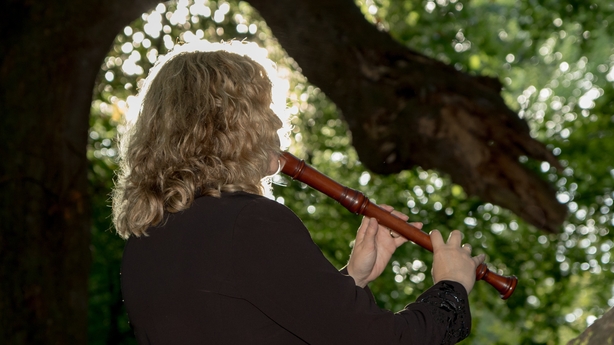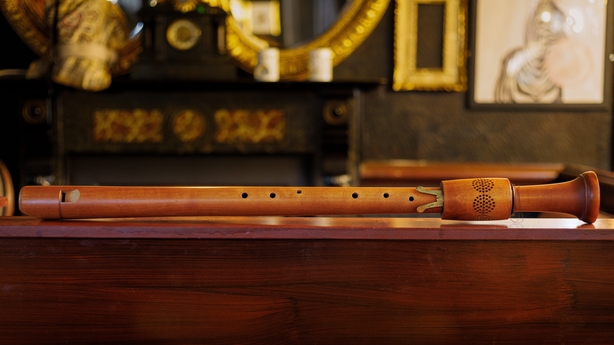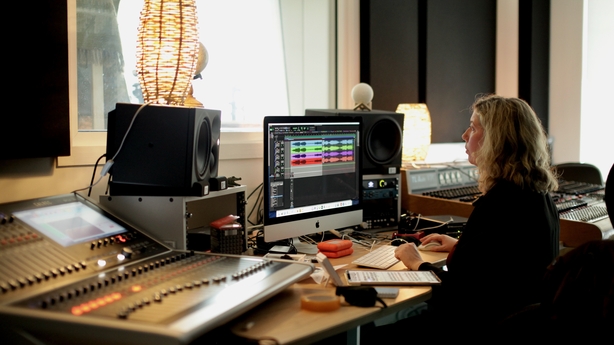In the Lyric Feature this Sunday at 6 pm, Laoise O' Brien presents For the Record, in which she embarks on a journey to tell the story of the recorder and its development during the ages.
Scroll to the end for the full music list
Laoise O' Brien has spent the last twenty-five years championing the recorder- a much maligned musical instrument which is often considered to be an instrument of torture. In 'For the Record’ on The Lyric Feature on Sunday, 17th December (6pm, RTÉ lyric fm) she attempts to set the record straight as she guides the listener through the one thousand year journey of the "sweet flute" and traces its role in music from the hunt, to the village green and to the courts of kings and queens.

I love the recorder. I love the immediacy of it. There is no reed or mouthpiece or embouchure- you blow, and a sound comes out. Simple! It’s a lot like singing really, though whether it’s a pleasant sound or not very much depends on the individual, and there are definitely those of us who should stick to singing in the shower! Sadly, most people’s first thought when you mention the recorder is the often-unmelodious sound of a group of young children in a classroom. My experience of playing the recorder was a very different one.

I had my first recorder lesson at the age of five, and it became obvious to the people around me that I had a natural inclination towards music. I was incredibly fortunate to have had brilliant teachers, particularly Jenny Robinson who opened the world of music to me. When I was twelve, I took up the flute and after a few years began studying with the wonderful mentor, William Halpin at the College of Music in Dublin. This led to me pursuing an undergraduate degree in music performance, but all the while I was longing to play the early music that I had grown up playing.
After college, a series of fortunate events brought me to Amsterdam where I found myself studying recorder at the Conservatoire. After six years in the Netherlands, I returned to Ireland and have spent the last couple of decades championing the recorder through performing, teaching, broadcasting and recording.

The recording bug really bit, however, and after recording a couple of my own albums, I became interested in production. For the last number of years, I have been working with colleagues all over Ireland, recording a huge variety of music, and now I divide my time between my work as a producer and my performance career.
In ‘For the Record’ which airs on the Lyric Feature this Sunday, I explore the history of the recorder in the context of my own experience as a player. While most of us think of the recorder as being a small type of flute, the reality is that recorders come in all shapes and sizes and have a history going back a millennium. Join me as I share stories of kings and angels, birds and beasts, and where the name recorder came from in the first place.
The performers featured on this broadcast include:
Siobhan Armstrong, harp
Eamon Sweeney, baroque guitar
Malachy Robinson, viol and double bass
Francesco Turrisi, piano, spinet and percussion
Fionn Ó hAlmhain, voice and tinwhistle
Kamala Bain, recorder
Sarah Groser, bass viol
Brendan Long, voice
Paul Roe, clarinet
The Irish Baroque Orchestra, directed by Monica Huggett with Laoise O'Brien and Kate Hearne, recorders
The music was recorded by Ben Rawlins. Irish Baroque Orchestra recorded by Mark McGrath.
Repertoire:
- John Dowland (1563-1626): The Frog Galliard
- Trad. Irish (Joyce Collection): The Devil in Dublin
- Trad. Irish (Joyce Collection): Beer and Ale and Brandy
- Jacob van Eyck (1590-1657): Engels Nachtegaeltje [theme]
- Thomas Ravencscoft: Three Blinde Mice (1609)
- Anon: A Solis Ortu (Lament for the Death of Charlemagne c.815)
- Italian, 14th century: Saltarello
- Hubert Waelrant (c.1517-1595): Als ick u vinde
- Anon. 16th century: Villanelle 'Luna ch’i’fussi horrori’ [extract]
- Child #26: The Three Ravens [extract]
- Greensleeves to a Ground from the Division Flute (1706)
- J.S. Bach (1685-1750): Brandenburg Concerto No. 4 (Allegro)
- Trad. English: I will give my love an apple
- The Bird Fancyer’s Delight (1717): A tune for the Throstle, A tune for the East India Nightingale, A tune for the Woodlark, A tune for the Starling.
- Toirdhealbhach Ó Cearbhalláin (1670-1738): Sí Bheag, Sí Mhór
- Katharine Norman: Paul’s Walk (2015) [Extract]
- Syrian Lullaby: Sleep, my Child
- Anon. 17th century: Home again, market is done
For the Record, presented by Laoise O' Brien, is the Lyric Feature on Sunday 17th December at 6 pm on RTÉ lyric fm.
Listen to more from the Lyric Feature here.

